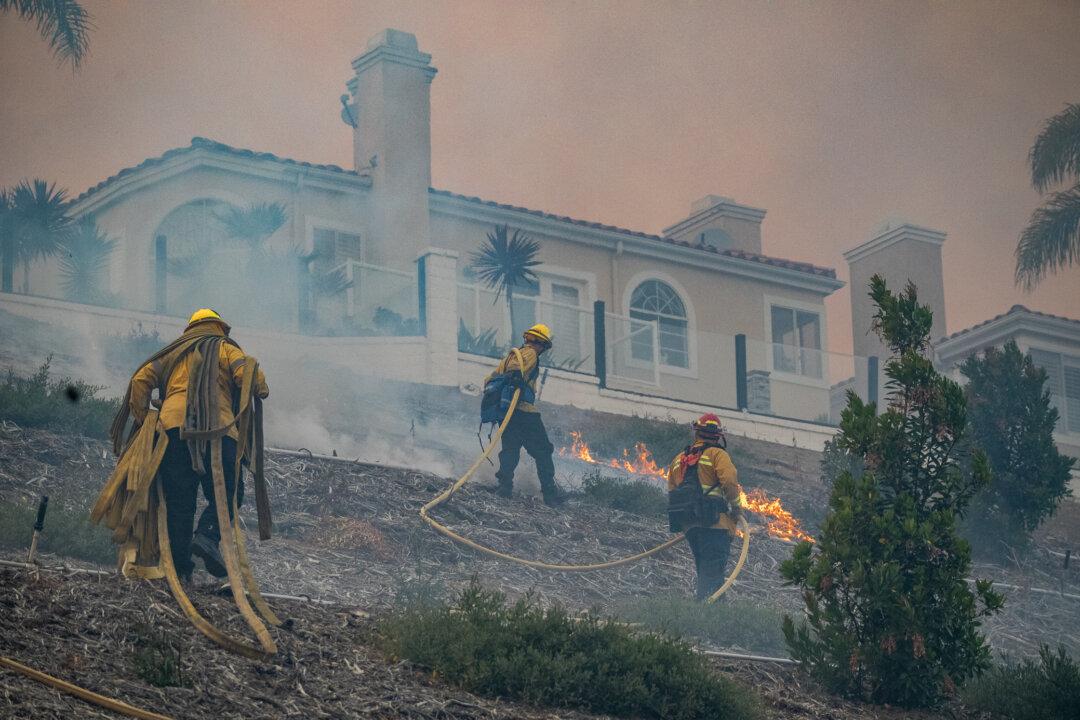With the wildfire season ramping up—as hot, dry weather combines with high winds—many California residents are reporting their nerves are on edge due to recent fires in Maui and a series of blazes currently impacting Oregon, and now more than 50,000 families will be looking for new insurance after another two companies recently announced they will be dropping policies.
“Are there going to be any insurance companies left in California?” Matt Cross—Santa Rosa resident and lifelong Californian—asked The Epoch Times. “To say my neighbors and I are scared for our future is an understatement.”





